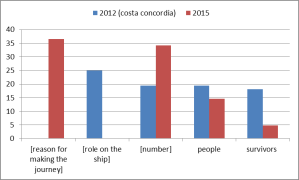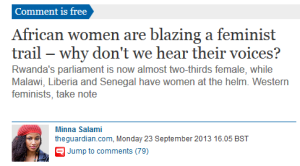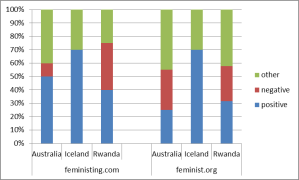Contributions are invited for an edited collection dedicated to absence and silence in discourse. Although it is acknowledged that absences contribute to the meaning of what is present, discourse analysis has frequently focussed on what is said and, to date, the systematic analysis of what is unsaid and silenced, rare or absent in linguistic data, has received relatively little attention. In part, this is due to the methodological challenges of identifying, accessing and investigating absences. More conceptualisation is also required on how we can interpret absences in discourse as meaningful. These are the issues that we intend to tackle in this innovative volume. The aim is to bring together researchers who have been investigating absence and silence and to present a range of proposals as to how we can identify and analyse what is absent (and yet structuring of the discourse). In so doing, the volume aims to promote the empirical study of absence and silence in discourse and to give them a more central position in discourse analysis.
We invite contributions from a range of perspectives, which discuss and demonstrate ways of analysing silence and absence empirically. We particularly welcome proposals which go beyond the identification of an absence to include reflection of how to systematically identify that kind of absence/silence, and how absence can actually be analysed as part of the interpretation of a discourse.
Topics might include, but are not limited to:
- absence/silence as the result of suppression to support a dominant discourse, as a result of hegemony and the absence of alternatives
- absence/silence as the result of the development of discourses; what becomes absent in a process of development from a more heterogeneous discourse into hegemonic narratives or what gets left out of successive drafts/different versions of texts and/or as the result of addressee orientation
- absence/silence regarding participants in events; voices that are heard or absent, make themselves heard or are silenced, participants that strategically claim they have been silenced
- absence/silence as the result of (the process of) translation; which texts get selected for translation, which aspects of discourse determined, culture specific or time bound meaning get ‘lost in translation’
- absence/silence in metaphors; how does metaphorical conceptualisation contribute to the foregrounding and backgrounding of aspects of the phenomenon in question
- absence/silence in multimodal texts; what is reinforced or silenced in the interplay between different modes of communication
- metadiscourse about absence/silence; how are silences identified and evaluated by discourse participants, what is it that makes silence meaningful to them.
We invite abstract proposals of up to 300 words (excluding references) to be submitted to the editors Melani Schröter (m.schroeter@reading.ac.uk) and Charlotte Taylor (charlotte.taylor@sussex.ac.uk) by 30 April 2016. If accepted, we will ask for first drafts of chapters (up to 9000 words) to be submitted by 1st October 2016 with view to publication with an international publisher (expressions of interest already in place) in 2017.


